
Here you can study for the exam. Look up keywords and learn definitions about all kind of subjects.
More subjects
Akira Kurosawa (Japanese: 黒澤 明, Hepburn: Kurosawa Akira, March 23, 1910 – September 6, 1998) was a Japanese filmmaker and painter who directed thirty films in a career spanning over five decades. He is widely regarded as one of the most important and influential filmmakers in the history of cinema. Kurosawa displayed a bold, dynamic style, strongly influenced by Western cinema yet distinct from it; he was involved with all aspects of film production. (Source: Wikipedia.org, CC BY-SA)
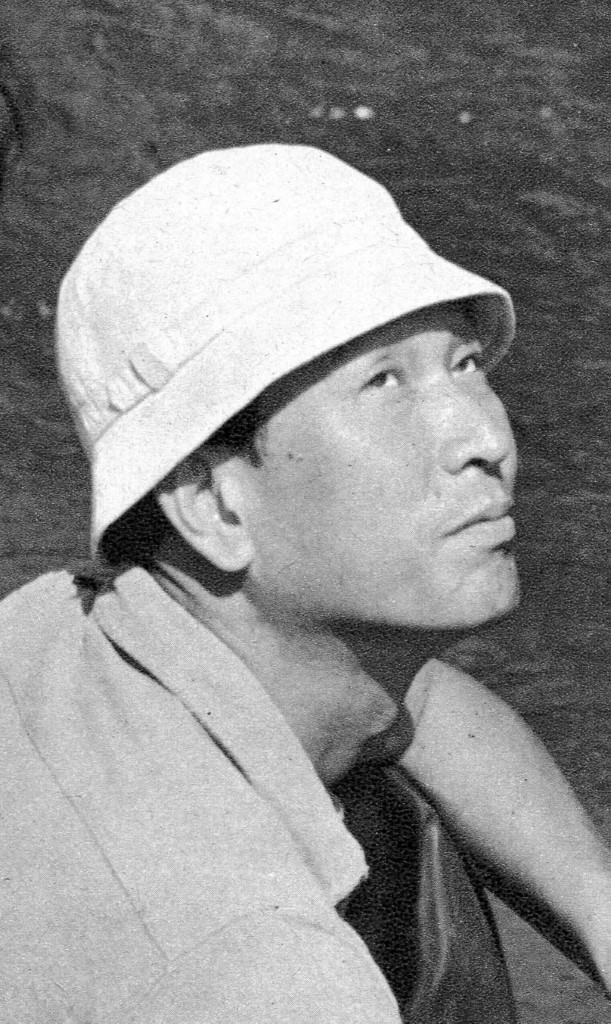 © Wikimedia.org/映画の友, CC0
© Wikimedia.org/映画の友, CC0
Alexander Proyas (/ˈprɔɪəs/; Greek: Αλέξανδρος Πρόγιας; born 23 September 1963) is an Australian filmmaker of Greek descent. Proyas is best known for directing the films The Crow (1994), Dark City (1998), I, Robot (2004), Knowing (2009), and Gods of Egypt (2016). (Source: Wikipedia.org, CC BY-SA)
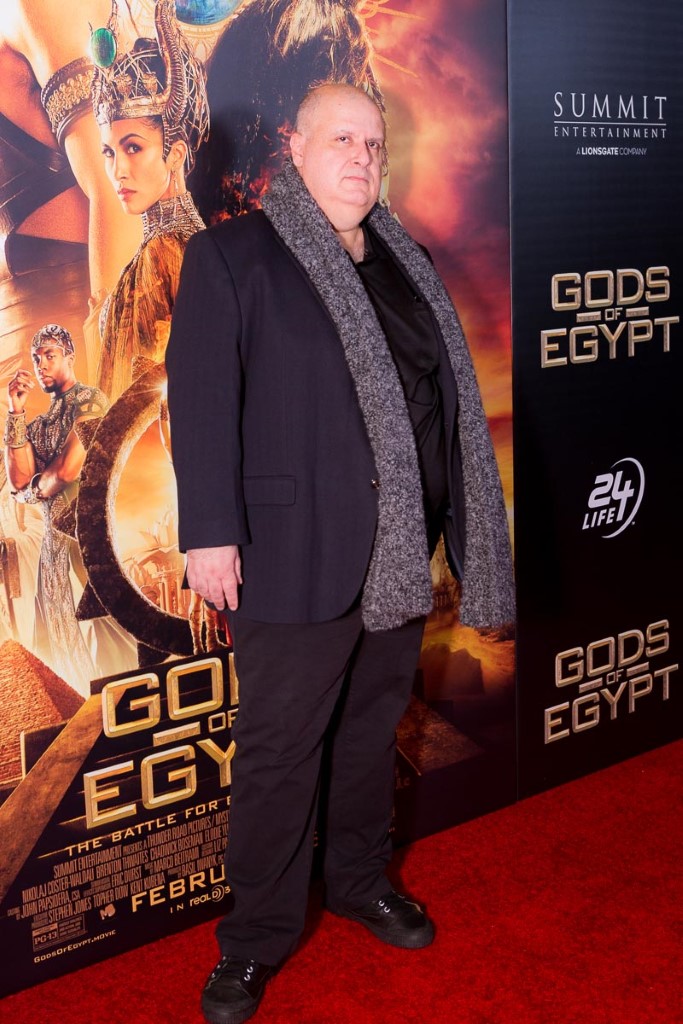 © Wikimedia.org/Sachyn, CC BY-SA
© Wikimedia.org/Sachyn, CC BY-SA
Sir Alfred Joseph Hitchcock KBE (13 August 1899 – 29 April 1980) was an English filmmaker. He is widely regarded as one of the most influential figures in the history of cinema. In a career spanning six decades, he directed over 50 feature films, many of which are still widely watched and studied today. Known as the 'Master of Suspense', he became as well known as any of his actors thanks to his many interviews, his cameo roles in most of his films, and his hosting and producing the television anthology Alfred Hitchcock Presents (1955–65). His films garnered 46 Academy Award nominations, including six wins, although he never won the award for Best Director despite five nominations. (Source: Wikipedia.org, CC BY-SA)
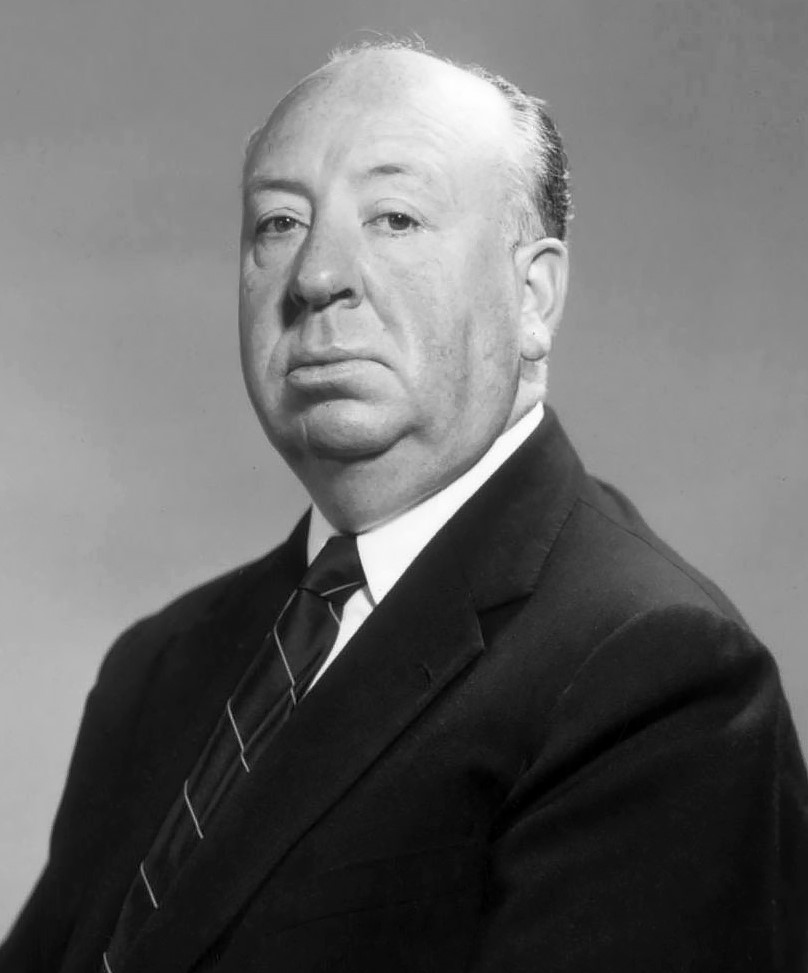 © Wikimedia.org/Ante Brkan, CC0
© Wikimedia.org/Ante Brkan, CC0
Andrew Lau Wai-keung (Chinese: 劉偉強, born 4 April 1960) is a Hong Kong film director, producer, and cinematographer. Lau began his career in the 1980s and 1990s, serving as a cinematographer to filmmakers such as Ringo Lam, Wong Jing and Wong Kar-wai. In the 1990s, Lau decided to have more creative freedom as a cinematographer by becoming a film director and producer. Apart from making films in his native Hong Kong, Lau has also made films in China, Korea and the United States. A highly prolific filmmaker, Lau has made films in a variety of genres, and is most notable in the West for his action and crime films which include the Young and Dangerous film series, the Infernal Affairs trilogy (the latter co-directed together with Alan Mak), and Revenge of the Green Dragons (executive produced by Martin Scorsese). (Source: Wikipedia.org, CC BY-SA)
Andrew Ayers Stanton (born December 3, 1965) is an American filmmaker and voice actor based at Pixar, which he joined in 1990. His film work includes co-writing and co-directing Pixar's A Bug's Life (1998), directing Finding Nemo (2003) and the sequel Finding Dory (2016), WALL-E (2008), and the live-action film, Disney's John Carter (2012), and co-writing all four Toy Story films (1995–2019) and Monsters, Inc. (2001). Finding Nemo and WALL-E earned Stanton two Academy Awards for Best Animated Feature. He was also nominated for three Academy Awards for Best Original Screenplay, for Finding Nemo, WALL-E, and Toy Story (1995), and for an Academy Award for Best Adapted Screenplay for Toy Story 3 (2010). WALL-E has also been inducted into the National Film Registry. On television, Stanton directed two episodes of Stranger Things in 2017, an episode of Better Call Saul in 2018, and the final season premiere of Legion in 2019. (Source: Wikipedia.org, CC BY-SA)
Ang Lee OBS (Chinese: 李安; pinyin: Lǐ Ān; born October 23, 1954) is a Taiwanese filmmaker. Born in Pingtung County of southern Taiwan, Lee was educated in Taiwan and later in the United States. During his filmmaking career, he has received international critical and popular acclaim and a range of accolades. Lee's early successes included Pushing Hands (1991), The Wedding Banquet (1993), and Eat Drink Man Woman (1994), which explored the relationships and conflicts between tradition and modernity, Eastern and Western; the three films are informally known as the 'Father Knows Best' trilogy. The films were critically successful both in his native Taiwan and internationally. His first entirely English-language film was Sense and Sensibility (1995), for which he received critical praise and a number of accolades. He went on to direct films in a broad range of genres, including the drama The Ice Storm (1997); the Civil War epic Ride with the Devil (1999); the martial arts wuxia drama Crouching Tiger, Hidden Dragon (2000); the superhero blockbuster Hulk (2003); the romantic drama Brokeback Mountain (2005); the erotic espionage period film Lust, Caution (2007); and the magic realist survival drama Life of Pi (2012). Most of Lee's work is known for its emotional charge and exploration of repressed, hidden emotions. (Source: Wikipedia.org, CC BY-SA)
Barry Lee Levinson (born April 6, 1942) is an American filmmaker, comedian and actor. Levinson's best-known works are mid-budget comedy drama and drama films such as Diner (1982); The Natural (1984); Good Morning, Vietnam (1987); Bugsy (1991); and Wag the Dog (1997). He won the Academy Award for Best Director for Rain Man (1988). In 2021, he co-executive produced the Hulu miniseries Dopesick and directed the first two episodes. (Source: Wikipedia.org, CC BY-SA)
Mark Anthony Luhrmann (born 17 September 1962), known professionally as Baz Luhrmann, is an Australian film director, producer, writer and actor. With projects spanning film, television, opera, theatre, music and recording industries, he is regarded by some as a contemporary example of an auteur for his style and deep involvement in the writing, directing, design, and musical components of all his work. He is the most commercially successful Australian director, with four of his films in the top ten highest worldwide grossing Australian films of all time. (Source: Wikipedia.org, CC BY-SA)
Benjamin Géza Affleck (born August 15, 1972) is an American actor and filmmaker. His accolades include two Academy Awards, three Golden Globe Awards and a Volpi Cup. Affleck began his career as a child when he starred in the PBS educational series The Voyage of the Mimi (1984, 1988). He later appeared in the independent coming-of-age comedy Dazed and Confused (1993) and various Kevin Smith films. Affleck gained wider recognition when he and Matt Damon won the Golden Globe and Academy Award for Best Original Screenplay for writing Good Will Hunting (1997), which they also starred in. He then established himself as a leading man in studio films, including the disaster film Armageddon (1998), the war drama Pearl Harbor (2001), and the thrillers The Sum of All Fears and Changing Lanes (both 2002). (Source: Wikipedia.org, CC BY-SA)
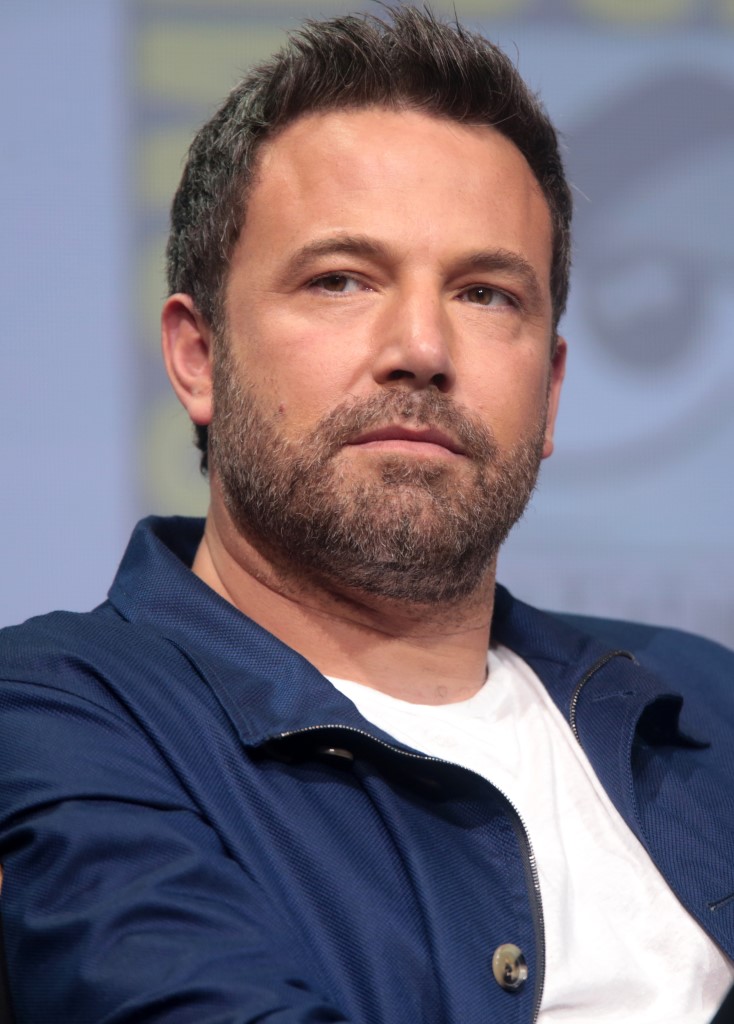 © Wikimedia.org/Gage Skidmore, CC BY-SA
© Wikimedia.org/Gage Skidmore, CC BY-SA
Bernardo Bertolucci OMRI (Italian: [berˈnardo bertoˈluttʃi]; 16 March 1941 – 26 November 2018) was an Italian film director and screenwriter with a career that spanned 50 years. Considered one of the greatest directors in Italian cinema, Bertolucci's work achieved international acclaim. He was the first Italian filmmaker to win the Academy Award for Best Director for The Last Emperor (1987), one of many accolades including two Golden Globes, two David di Donatellos, a British Academy Award, and a César Award. In recognition of his work, he was presented with the inaugural Honorary Palme d'Or Award at the opening ceremony of the 2011 Cannes Film Festival. He had previously received a Lifetime Achievement Golden Lion from the Venice Film Festival. (Source: Wikipedia.org, CC BY-SA)
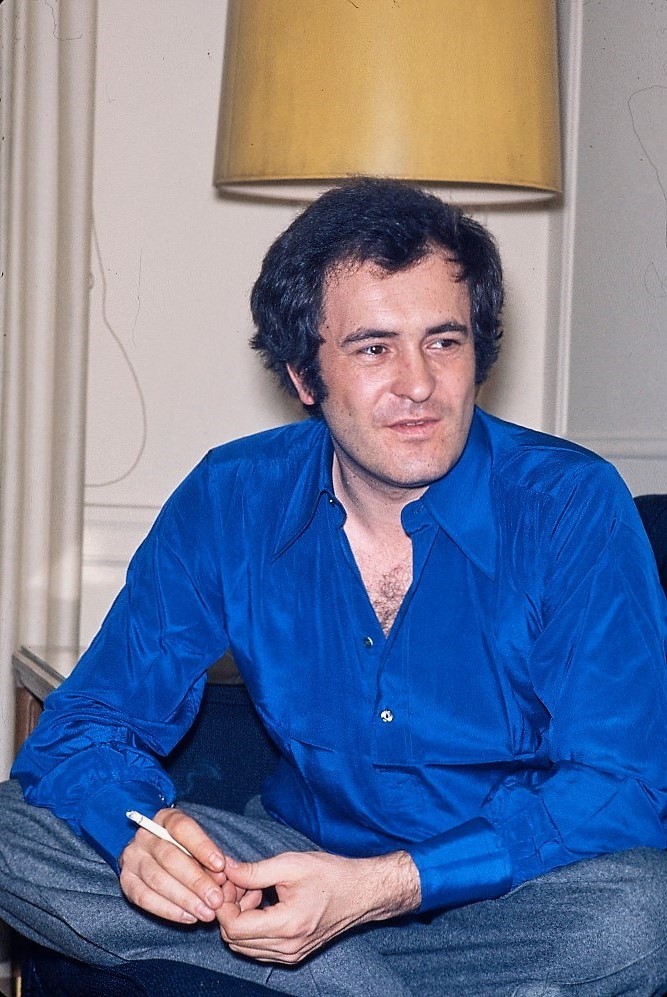 © Wikimedia.org/Gotfryd Bernard, CC0
© Wikimedia.org/Gotfryd Bernard, CC0
Phillip Bradley Bird (born September 24, 1957) is an American film director, animator, screenwriter, producer, and voice actor. He has had a career spanning forty years in both animation and live-action. Bird was born in Montana and grew up in Oregon. He developed an interest in the art of animation early on, and completed his first short subject by age 14. Bird sent the film to Walt Disney Productions, leading to an apprenticeship from the studio's Nine Old Men. He attended the California Institute of the Arts in the late 1970s, and worked for Disney shortly thereafter. (Source: Wikipedia.org, CC BY-SA)
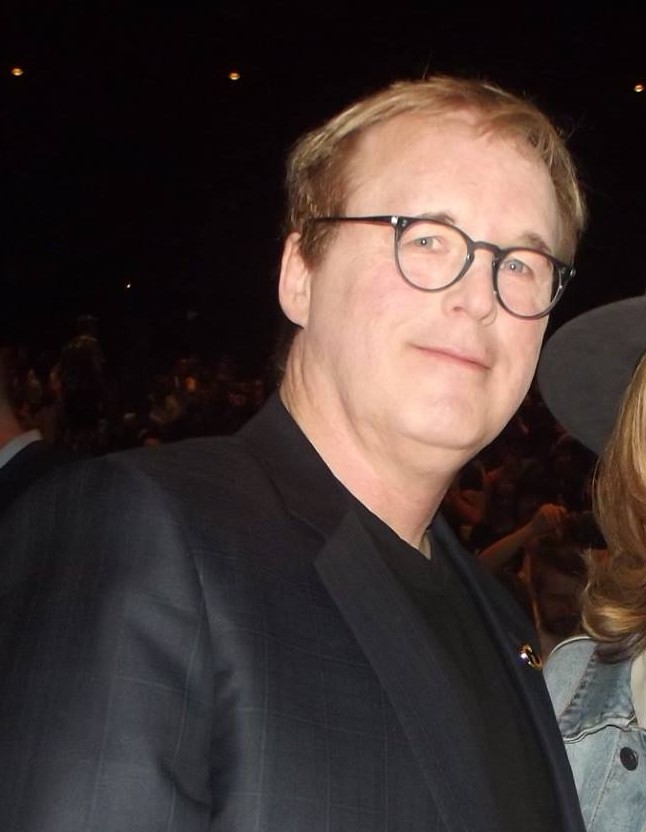 © Wikimedia.org/Boungawa, CC BY-SA
© Wikimedia.org/Boungawa, CC BY-SA
Brian Russell De Palma (born September 11, 1940) is an American film director and screenwriter. With a career spanning over 50 years, he is best known for his work in the suspense, crime and psychological thriller genres. De Palma was a leading member of the New Hollywood generation of film directors. His direction often makes use of quotations from other films or cinematic styles, and bears the influence of filmmakers such as Alfred Hitchcock and Jean-Luc Godard. His films have been criticized for their violence and sexual content but have also been championed by American critics such as Roger Ebert and Pauline Kael. His films include mainstream box office hits such as Carrie (1976), Dressed to Kill (1980), Scarface (1983), The Untouchables (1987), and Mission: Impossible (1996), as well as cult favorites such as Sisters (1972), Phantom of the Paradise (1974), Blow Out (1981), Casualties of War (1989), and Carlito's Way (1993). (Source: Wikipedia.org, CC BY-SA)
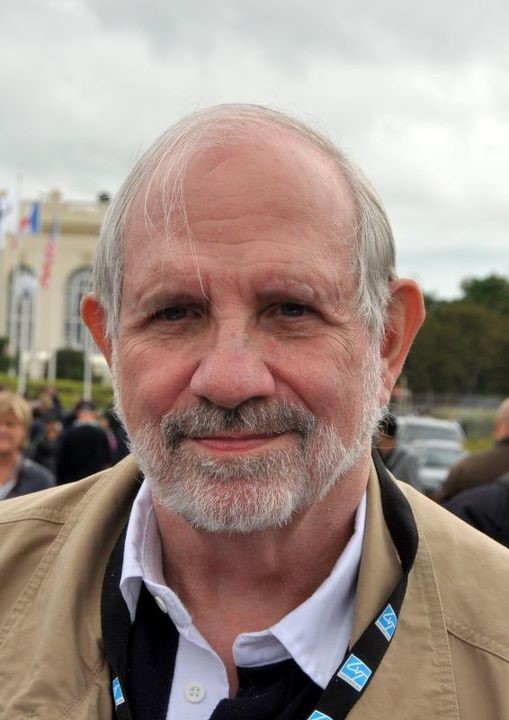 © Wikimedia.org/Georges Biard, CC BY-SA
© Wikimedia.org/Georges Biard, CC BY-SA
Bryan Jay Singer (born September 17, 1965) is an American filmmaker. He is the founder of Bad Hat Harry Productions and has produced almost all of the films he has directed. After graduating from the University of Southern California, Singer directed his first short film, Lion's Den (1988). On the basis of that film, he received financing for his next film, Public Access (1993), which was a co-winner of the Grand Jury Prize at the 1993 Sundance Film Festival. In the mid-1990s, Singer received critical acclaim for directing the neo-noir crime thriller The Usual Suspects (1995). He followed this with another thriller, Apt Pupil (1998), an adaptation of a Stephen King novella about a boy's fascination with a Nazi war criminal. In the 2000s, he became known for big budget superhero films such as X-Men (2000), for which Singer won the 2000 Saturn Award for Best Direction, its sequel X2 (2003), and Superman Returns (2006). He then directed the World War II historical thriller Valkyrie (2008), co-wrote/co-produced X-Men: First Class (2011), and directed the fantasy adventure film Jack the Giant Slayer (2013), as well as two more X-Men films, X-Men: Days of Future Past (2014) and X-Men: Apocalypse (2016). Singer also directed the Queen biographical film Bohemian Rhapsody (2018), although he was fired from the film shortly before its completion in the wake of allegations of sexual misconduct. (Source: Wikipedia.org, CC BY-SA)
Christopher Edward Nolan CBE (born 30 July 1970) is a British-American filmmaker. Known for his Hollywood blockbusters with complex storytelling, Nolan is considered a leading filmmaker of the 21st century. His films have grossed $5 billion worldwide. The recipient of many accolades, he has been nominated for five Academy Awards, five British Academy Film Awards and six Golden Globe Awards. In 2015, he was listed as one of the 100 most influential people in the world by Time, and in 2019, he was appointed Commander of the Order of the British Empire for his contributions to film. (Source: Wikipedia.org, CC BY-SA)
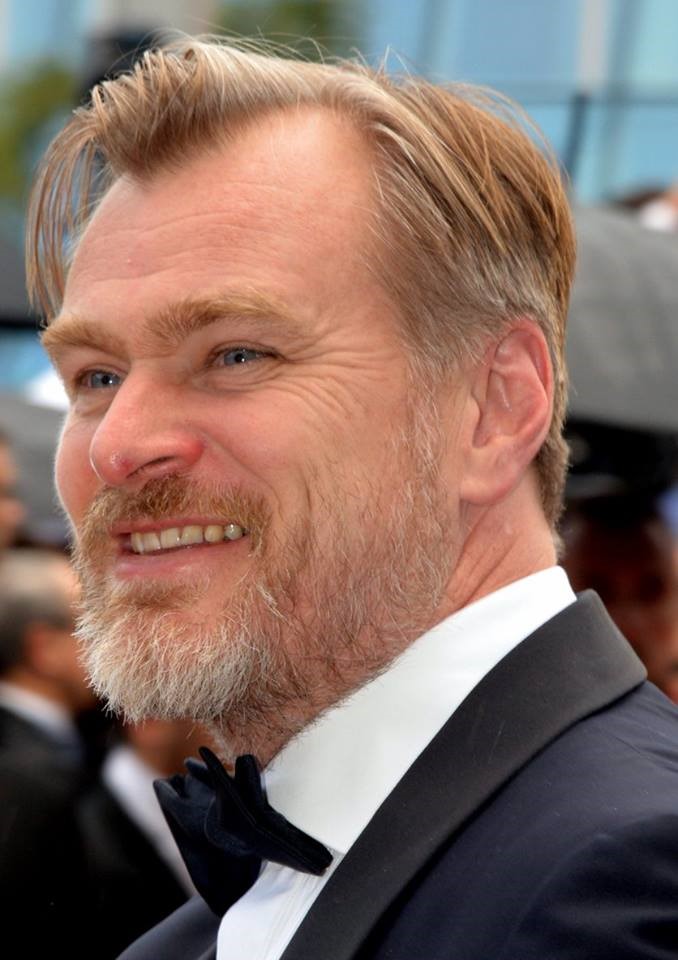 © Wikimedia.org/Georges Biard, CC BY-SA
© Wikimedia.org/Georges Biard, CC BY-SA
Clinton Eastwood Jr. (born May 31, 1930) is an American actor and film director. After achieving success in the Western TV series Rawhide, he rose to international fame with his role as the 'Man with No Name' in Sergio Leone's 'Dollars Trilogy' of Spaghetti Westerns during the mid-1960s and as antihero cop Harry Callahan in the five Dirty Harry films throughout the 1970s and 1980s. These roles, among others, have made Eastwood an enduring cultural icon of masculinity. Elected in 1986, Eastwood served for two years as the mayor of Carmel-by-the-Sea, California. (Source: Wikipedia.org, CC BY-SA)
Daniel Francis Boyle (born 20 October 1956) is an English director and producer. He is known for his work on films including Shallow Grave, Trainspotting and its sequel T2 Trainspotting, The Beach, 28 Days Later, Sunshine, Slumdog Millionaire, 127 Hours, Steve Jobs and Yesterday. Boyle's debut film Shallow Grave won the BAFTA Award for Best British Film. The British Film Institute ranked Trainspotting the 10th greatest British film of the 20th century. Boyle's 2008 film Slumdog Millionaire, the most successful British film of the decade, was nominated for ten Academy Awards and won eight, including the Academy Award for Best Director. He also won the Golden Globe and BAFTA Award for Best Director. Boyle was presented with the Extraordinary Contribution to Filmmaking Award at the 2008 Austin Film Festival, where he also introduced that year's AFF Audience Award Winner Slumdog Millionaire. (Source: Wikipedia.org, CC BY-SA)
David Paul Cronenberg CC OOnt (born March 15, 1943) is a Canadian film director, screenwriter, and actor. He is one of the principal originators of what is commonly known as the body horror genre, with his films exploring visceral bodily transformation, infectious diseases, and the intertwining of the psychological, the physical and the technological. Cronenberg is best known for exploring these themes through sci-fi horror films such as Shivers (1975), Scanners (1981), Videodrome (1983) and The Fly (1986), though he has also directed dramas, psychological thrillers and gangster films. (Source: Wikipedia.org, CC BY-SA)
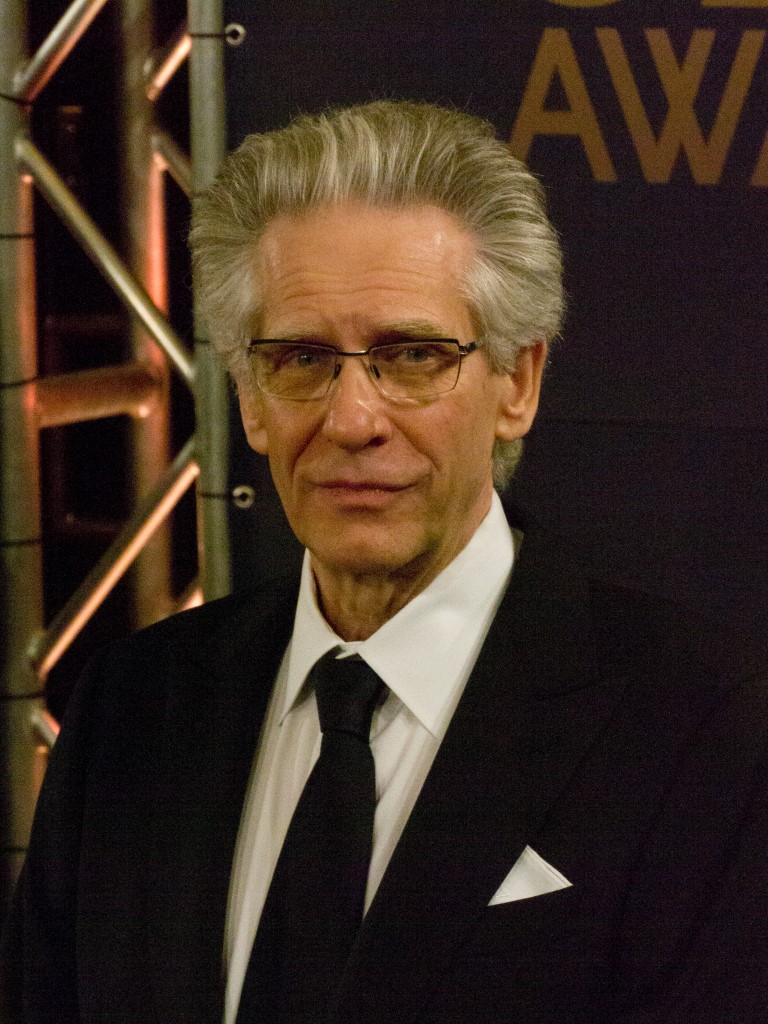 © Wikimedia.org/Alan Langford, CC BY-SA
© Wikimedia.org/Alan Langford, CC BY-SA
David Andrew Leo Fincher (born August 28, 1962) is an American film director. His films, mostly psychological thrillers and biographical dramas, have received 40 nominations at the Academy Awards, including three for him as Best Director. Fincher was the co-founder of Propaganda Films, a film and music video production company. Born in Denver, Colorado, Fincher was interested in filmmaking at an early age. He directed numerous music videos, most notably Madonna's 'Express Yourself' in 1989 and 'Vogue' in 1990, both of which won him the MTV Video Music Award for Best Direction. He made his feature film debut with Alien 3 (1992), which garnered mixed reviews, followed by the thriller Seven (1995), which was better received. Fincher found success with The Game (1997) and greater success with Fight Club (1999), with the latter eventually becoming a cult classic. In 2002, he returned to prominence with the thriller Panic Room starring Jodie Foster. (Source: Wikipedia.org, CC BY-SA)
Sir David Lean CBE (25 March 1908 – 16 April 1991) was an English film director, producer, screenwriter and editor. Widely considered one of the most important figures in British cinema, Lean directed the large-scale epics The Bridge on the River Kwai (1957), Lawrence of Arabia (1962), Doctor Zhivago (1965), and A Passage to India (1984). He also directed the film adaptations of two Charles Dickens novels, Great Expectations (1946) and Oliver Twist (1948), as well as the romantic drama Brief Encounter (1945). (Source: Wikipedia.org, CC BY-SA)
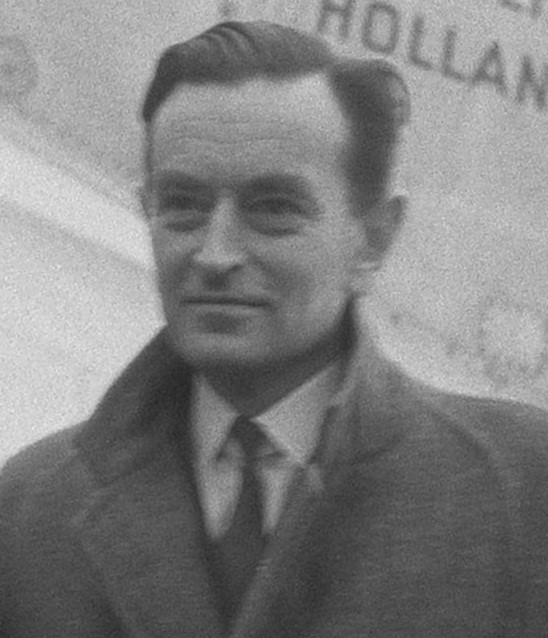 © Wikimedia.org/Harry Pot/Anefo, CC0
© Wikimedia.org/Harry Pot/Anefo, CC0
David Keith Lynch (born January 20, 1946) is an American filmmaker, visual artist and actor. A recipient of an Academy Honorary Award in 2019, Lynch has received three Academy Award nominations for Best Director, and the César Award for Best Foreign Film twice, as well as the Palme d'Or at the Cannes Film Festival and a Golden Lion award for lifetime achievement at the Venice Film Festival. In 2007, a panel of critics convened by The Guardian announced that 'after all the discussion, no one could fault the conclusion that David Lynch is the most important film-maker of the current era', while AllMovie called him 'the Renaissance man of modern American filmmaking'. His work led to him being labeled 'the first populist surrealist' by film critic Pauline Kael. (Source: Wikipedia.org, CC BY-SA)
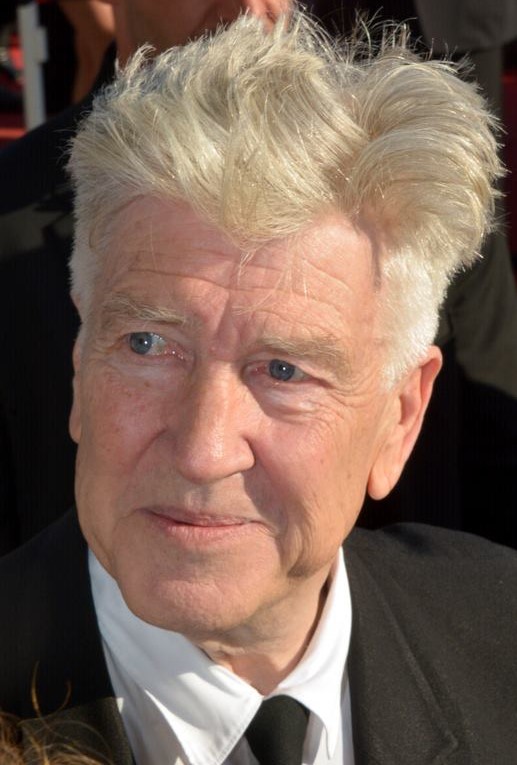 © Wikimedia.org/Georges Biard, CC BY-SA
© Wikimedia.org/Georges Biard, CC BY-SA
Douglas Eric Liman (/ˈlaɪmən/; born July 24, 1965) is an American film director and producer. He is known for directing the films Swingers (1996), Go (1999), The Bourne Identity (2002), Mr. & Mrs. Smith (2005), Jumper (2008), Edge of Tomorrow (2014), and American Made (2017). Most of his career has been associated with the production company Hypnotic. He is co-owner with Dave Bartis, whom he met as an undergraduate at Brown University where they co-founded Brown Television (BTV) and the National Association of College Broadcasters (NACB). Liman is on the advisory board of the Legal Action Center and the Arthur Liman Public Interest Program at Yale Law School. (Source: Wikipedia.org, CC BY-SA)
Edgar Howard Wright (born 18 April 1974) is an English filmmaker. He is known for his fast-paced and kinetic, satirical genre films, which feature extensive utilisation of expressive popular music, Steadicam tracking shots, dolly zooms and a signature editing style that includes transitions, whip pans and wipes. He began making independent short films before making his first feature film A Fistful of Fingers in 1995. Wright created and directed the comedy series Asylum in 1996, written with David Walliams. After directing several other television shows, Wright directed the sitcom Spaced (1999–2001), which aired for two series and starred frequent collaborators Simon Pegg and Nick Frost. (Source: Wikipedia.org, CC BY-SA)
Edward M. Zwick (born October 8, 1952) is an American filmmaker and producer of film and television. He has worked primarily in the comedy drama and epic historical film genres, including About Last Night, Glory, Legends of the Fall, and The Last Samurai. He is also the co-creator of the television series thirtysomething and Once and Again. (Source: Wikipedia.org, CC BY-SA)
Joel Daniel Coen (born November 29, 1954) and Ethan Jesse Coen (born September 21, 1957), collectively known as the Coen brothers (/ˈkoʊən/), are American filmmakers. Their films span many genres and styles, which they frequently subvert or parody. Their most acclaimed works include Raising Arizona (1987), Miller's Crossing (1990), Barton Fink (1991), Fargo (1996), The Big Lebowski (1998), O Brother, Where Art Thou? (2000), No Country for Old Men (2007), True Grit (2010), Inside Llewyn Davis (2013), and The Ballad of Buster Scruggs (2018). (Source: Wikipedia.org, CC BY-SA)
Francis Ford Coppola (/ˈkoʊpələ/; Italian: [ˈkɔppola]; born April 7, 1939) is an American film director, producer, and screenwriter. He is considered one of the major figures of the New Hollywood filmmaking movement of the 1960s and 1970s. Coppola is the recipient of five Academy Awards, six Golden Globe Awards, two Palmes d'Or, and a British Academy Film Award (BAFTA). After directing The Rain People in 1969, Coppola co-wrote Patton (1970), which earned him the Academy Award for Best Original Screenplay along with Edmund H. North. Coppola's reputation as a filmmaker was cemented with the release of The Godfather (1972), which revolutionized the gangster genre of filmmaking, receiving strong commercial and critical reception. The Godfather won three Academy Awards: Best Picture, Best Actor, and Best Adapted Screenplay (shared with Mario Puzo). His film The Godfather Part II (1974) became the first sequel to win the Academy Award for Best Picture. Highly regarded by critics, the film gained Coppola three more Academy Awards: Best Adapted Screenplay, Best Director, and Best Picture, making him the second director (after Billy Wilder) to win these three awards for the same film. (Source: Wikipedia.org, CC BY-SA)
Frank Árpád Darabont (born Ferenc Árpád Darabont, January 28, 1959) is an American film director, screenwriter and producer. He has been nominated for three Academy Awards and a Golden Globe Award. In his early career, he was primarily a screenwriter for such horror films as A Nightmare on Elm Street 3: Dream Warriors (1987), The Blob (1988) and The Fly II (1989). As a director, he is known for his film adaptations of Stephen King novellas and novels, such as The Shawshank Redemption (1994), The Green Mile (1999), and The Mist (2007). Darabont also developed and executive-produced the first season and first half of the second season of the AMC horror series The Walking Dead (2010–2011). (Source: Wikipedia.org, CC BY-SA)
Gary Trousdale (born June 8, 1960) is an American animator, film director, screenwriter and storyboard artist. He is best known for directing films such as Beauty and the Beast (1991), The Hunchback of Notre Dame (1996), and Atlantis: The Lost Empire (2001). He frequently works with Kirk Wise and Don Hahn. Trousdale was raised in La Crescenta, north of Glendale, California. He had planned to be an architect, but had failed at math. Instead, he had decided to study animation at CalArts, where he studied for three years. After his studying, he applied to work as an animator for Carter/Mendez Productions. He was hired in 1982 to design storyboards and do other animation. He then went to work designing restaurant menus and T-shirts. (Source: Wikipedia.org, CC BY-SA)
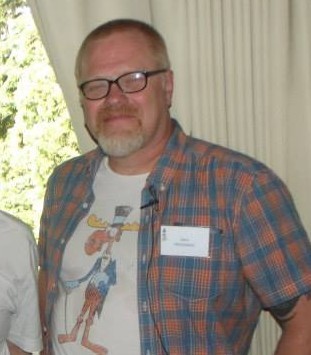 © Wikimedia.org/Boungawa, CC BY-SA
© Wikimedia.org/Boungawa, CC BY-SA
George Walton Lucas Jr. (born May 14, 1944) is an American filmmaker. Lucas is best known for creating the Star Wars and Indiana Jones franchises and founding Lucasfilm, LucasArts, Industrial Light & Magic and THX. He served as chairman of Lucasfilm before selling it to The Walt Disney Company in 2012. Lucas is one of history's most financially successful filmmakers and has been nominated for four Academy Awards. His films are among the 100 highest-grossing movies at the North American box office, adjusted for ticket-price inflation. Lucas is considered to be one of the most significant figures of the 20th-century New Hollywood movement, and a pioneer of the modern blockbuster. (Source: Wikipedia.org, CC BY-SA)
Gregor Justin 'Gore' Verbinski (born March 16, 1964) is an American film director, screenwriter, producer, and musician. He is best known for directing The Ring, the Pirates of the Caribbean films, and Rango. He won the Academy Award, the BAFTA, and was nominated for the Golden Globe Award for Best Animated Feature Film for his work on Rango. (Source: Wikipedia.org, CC BY-SA)
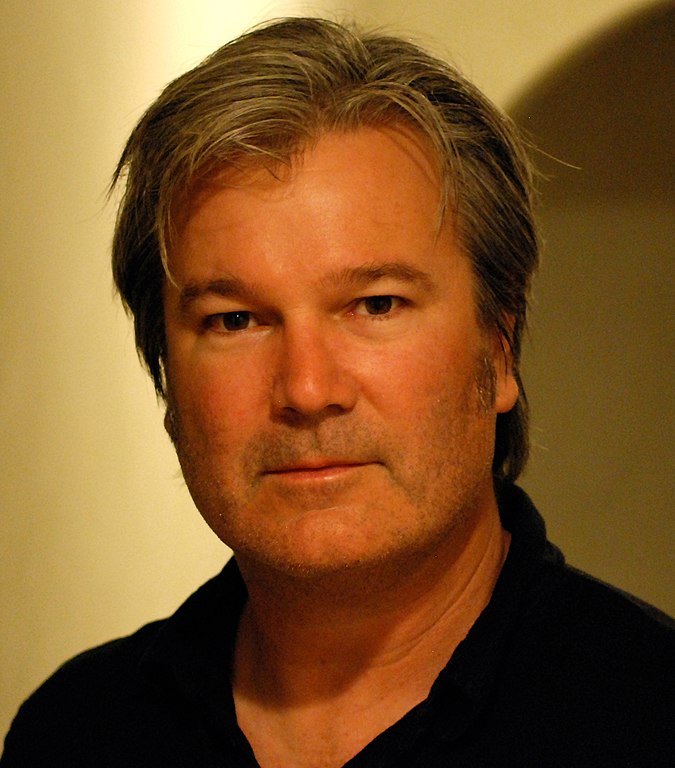 © Wikimedia.org/Raccoonpawz, CC BY-SA
© Wikimedia.org/Raccoonpawz, CC BY-SA
Guillermo del Toro Gómez (Spanish: [ɡiˈʝeɾmo ðel ˈtoɾo]; born October 9, 1964) is a Mexican filmmaker, author, and actor. He directed the Academy Award–winning fantasy films Pan's Labyrinth (2006) and The Shape of Water (2017), winning the Academy Awards for Best Director and Best Picture for the latter. Throughout his career, del Toro has shifted between Spanish-language films—such as Cronos (1993), The Devil's Backbone (2001), and Pan's Labyrinth—and English-language films, including Mimic (1997), Blade II (2002), Hellboy (2004), Hellboy II: The Golden Army (2008), Pacific Rim (2013), Crimson Peak (2015), The Shape of Water (which he later novelized), Nightmare Alley (2021), and the stop-motion animated film Pinocchio (2022). (Source: Wikipedia.org, CC BY-SA)
Guy Stuart Ritchie (born 10 September 1968) is an English film director, producer and screenwriter. His work includes British gangster films, and the Sherlock Holmes films starring Robert Downey Jr. Ritchie left school at age 15 and worked entry-level jobs in the film industry before going on to direct television commercials. In 1995, he directed a short film, The Hard Case, followed by the crime comedy Lock, Stock and Two Smoking Barrels (1998), his feature-length directorial debut. He gained recognition with his second film, Snatch (2000), which found critical and commercial success. Following Snatch, Ritchie directed Swept Away (2002), a critically panned box-office bomb starring Madonna, to whom Ritchie was married between 2000 and 2008. He went on to direct Revolver (2005) and RocknRolla (2008), which were less successful and received mixed reviews. In 2009 and 2011, he directed two box-office hits, Sherlock Holmes and its sequel, Sherlock Holmes: A Game of Shadows, respectively. The former was nominated for Academy Awards in Best Original Score and Best Art Direction. (Source: Wikipedia.org, CC BY-SA)
 © Wikimedia.org/Kathy Hutchins, CC BY-SA
© Wikimedia.org/Kathy Hutchins, CC BY-SA
Hayao Miyazaki (宮崎 駿, Miyazaki Hayao, [mijaꜜzaki hajao]; born January 5, 1941) is a Japanese animator, director, producer, screenwriter, author, and manga artist. A co-founder of Studio Ghibli, he has attained international acclaim as a masterful storyteller and creator of Japanese animated feature films, and is widely regarded as one of the most accomplished filmmakers in the history of animation. (Source: Wikipedia.org, CC BY-SA)
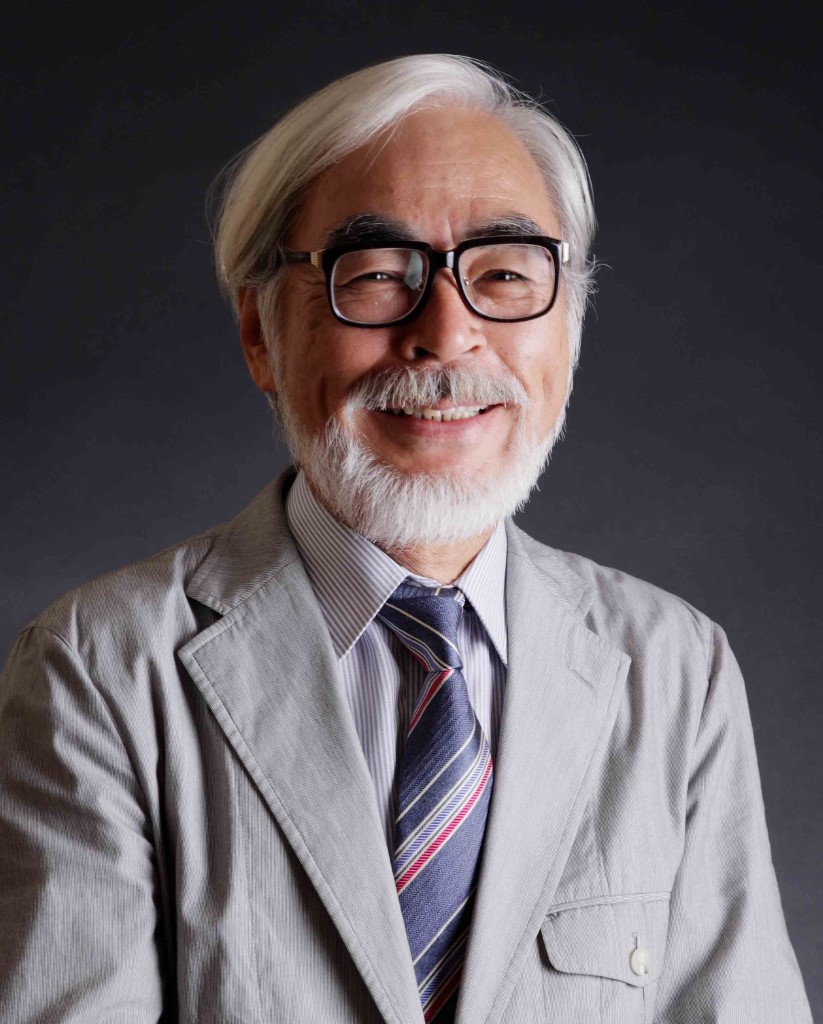 © Wikimedia.org/文部科学省ホームページ, CC BY
© Wikimedia.org/文部科学省ホームページ, CC BY
Charles Henry Selick Jr. (/ˈsɛlɪk/; born November 30, 1952) is an American film director, producer, screenwriter, production designer, and animator who is best known for directing the stop-motion animation films The Nightmare Before Christmas (1993), James and the Giant Peach (1996), Monkeybone (2001), Coraline (2009), and Wendell & Wild (2022). He studied at the Program in Experimental Animation at California Institute of the Arts, under the guidance of Jules Engel. Selick is also known for his collaborations with voice actor and artist Joe Ranft. (Source: Wikipedia.org, CC BY-SA)
Jeffrey Jacob Abrams (born June 27, 1966) is an American filmmaker and composer. He is best known for his works in the genres of action, drama, and science fiction. Abrams wrote and produced such films as Regarding Henry (1991), Forever Young (1992), Armageddon (1998), Cloverfield (2008), Star Trek (2009), Star Wars: The Force Awakens (2015), and Star Wars: The Rise of Skywalker (2019). Abrams has created numerous television series, including Felicity (co-creator, 1998–2002), Alias (creator, 2001–2006), Lost (co-creator, 2004–2010), and Fringe (co-creator, 2008–2013). He won two Emmy Awards for Lost – Outstanding Directing for a Drama Series and Outstanding Drama Series. (Source: Wikipedia.org, CC BY-SA)
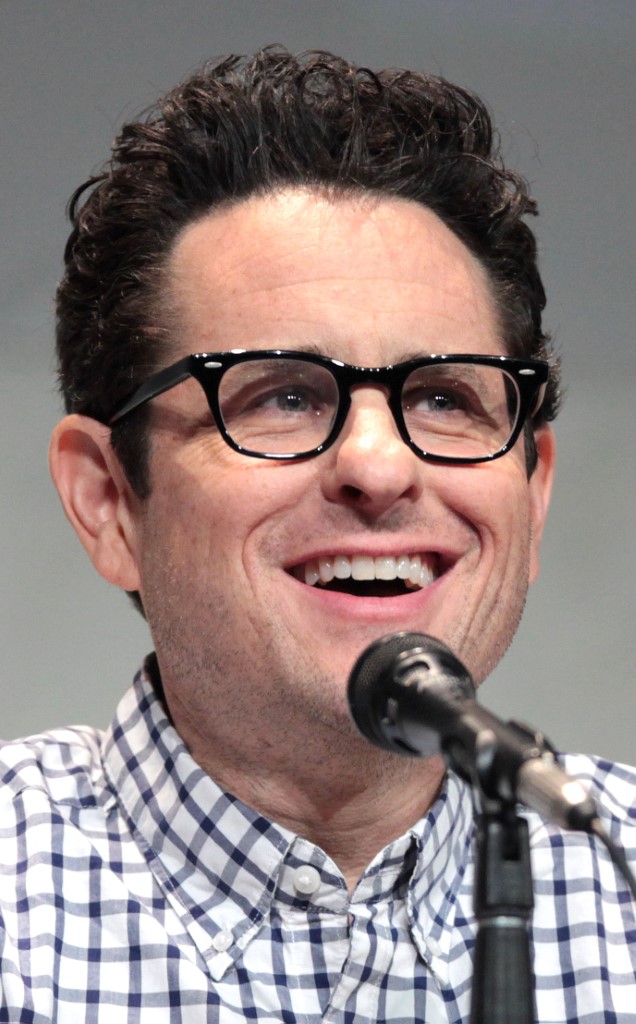 © Wikimedia.org/Gage Skidmore, CC BY-SA
© Wikimedia.org/Gage Skidmore, CC BY-SA
James Francis Cameron CC (born August 16, 1954) is a Canadian filmmaker. A major figure in the post-New Hollywood era, he is considered one of the industry's most innovative filmmakers, regularly pushing the boundaries of cinematic capability with his use of novel technologies. He first gained recognition for writing and directing The Terminator (1984) and found further success with Aliens (1986), The Abyss (1989), Terminator 2: Judgment Day (1991), and the action comedy True Lies (1994). He wrote and directed Titanic (1997) and Avatar (2009), with Titanic earning him Academy Awards for Best Picture, Best Director and Best Film Editing. A recipient of various other industry accolades, two of his films have been selected for preservation in the National Film Registry by the Library of Congress. (Source: Wikipedia.org, CC BY-SA)
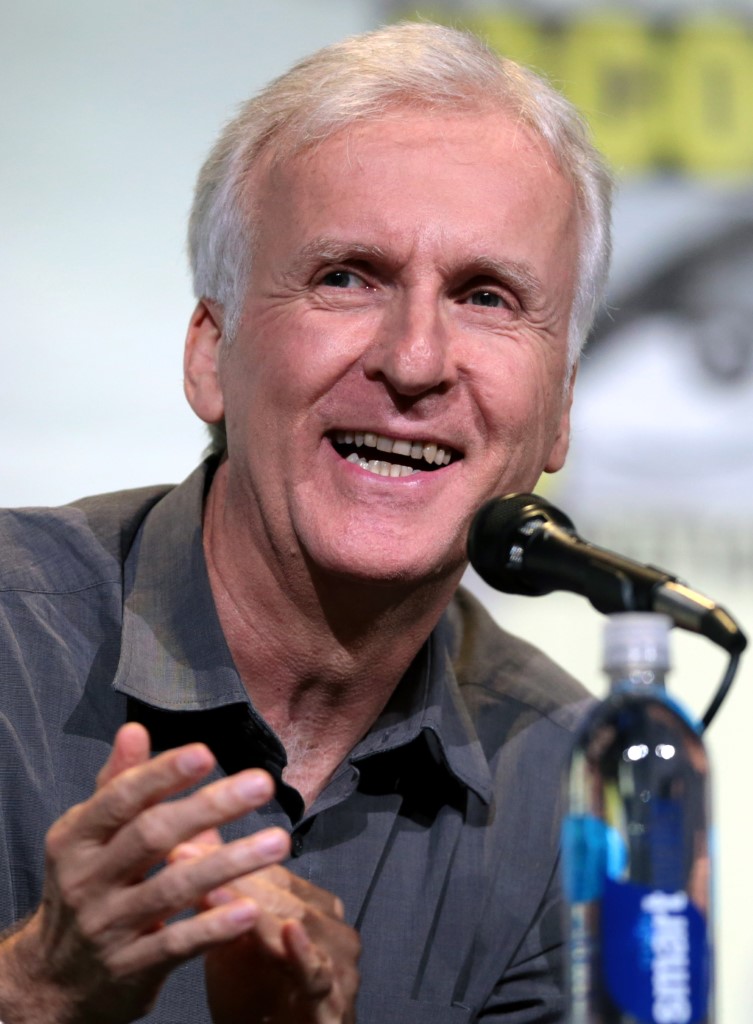 © Wikimedia.org/Gage Skidmore, CC BY-SA
© Wikimedia.org/Gage Skidmore, CC BY-SA
James Allen Mangold (born December 16, 1963) is an American filmmaker. He is best known for the films Cop Land (1997), Girl, Interrupted (1999), Walk the Line (2005), 3:10 to Yuma (2007), The Wolverine (2013) and Logan (2017), the last of which earned him a nomination for the Academy Award for Best Adapted Screenplay. He then directed and produced the sports drama film Ford v Ferrari (2019), which earned him a nomination for the Academy Award for Best Picture. He is also directing and co-writing Indiana Jones and the Dial of Destiny, which will be released in 2023. (Source: Wikipedia.org, CC BY-SA)
Joel Daniel Coen (born November 29, 1954) and Ethan Jesse Coen (born September 21, 1957), collectively known as the Coen brothers (/ˈkoʊən/), are American filmmakers. Their films span many genres and styles, which they frequently subvert or parody. Their most acclaimed works include Raising Arizona (1987), Miller's Crossing (1990), Barton Fink (1991), Fargo (1996), The Big Lebowski (1998), O Brother, Where Art Thou? (2000), No Country for Old Men (2007), True Grit (2010), Inside Llewyn Davis (2013), and The Ballad of Buster Scruggs (2018). (Source: Wikipedia.org, CC BY-SA)
John Howard Carpenter (born January 16, 1948) is an American filmmaker, actor, and composer. Although he worked in various film genres, he is most commonly associated with horror, action, and science fiction films of the 1970s and 1980s. He is generally recognized as one of the greatest masters of the horror genre. At the 2019 Cannes Film Festival, the French Directors' Guild gave him the Golden Coach Award, lauding him as 'a creative genius of raw, fantastic, and spectacular emotions'. (Source: Wikipedia.org, CC BY-SA)
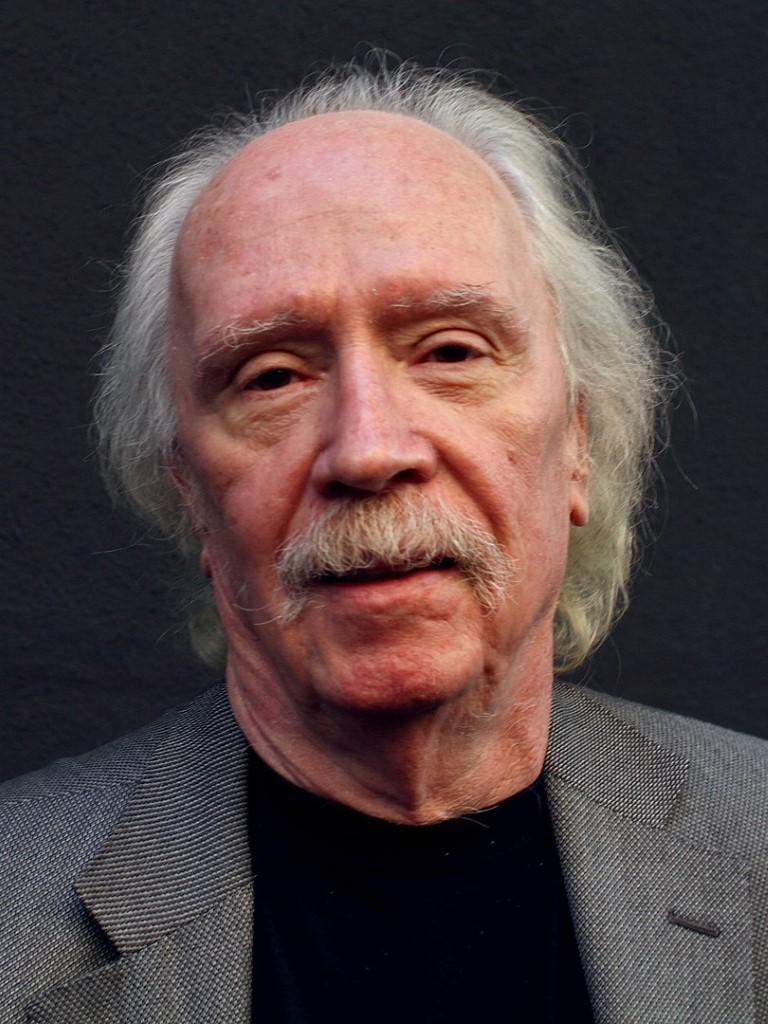 © Wikimedia.org/Nathan Hartley Maas, CC BY-SA
© Wikimedia.org/Nathan Hartley Maas, CC BY-SA
John Alan Lasseter (/ˈlæsətər/; born January 12, 1957) is an American film director, producer, screenwriter, animator, voice actor, and the head of animation at Skydance Animation. He was previously the chief creative officer of Pixar Animation Studios, Walt Disney Animation Studios, and Disneytoon Studios, as well as the Principal Creative Advisor for Walt Disney Imagineering. Lasseter began his career as an animator with The Walt Disney Company. After being fired from Disney for promoting computer animation, he joined Lucasfilm, where he worked on then-groundbreaking use of CGI animation. The Graphics Group of the Computer Division of Lucasfilm was sold to Steve Jobs and became Pixar in 1986. Lasseter oversaw all of Pixar's films and associated projects as executive producer. In addition, he directed Toy Story (1995), A Bug's Life (1998), Toy Story 2 (1999), Cars (2006), and Cars 2 (2011). From 2006 to 2018, Lasseter also oversaw all of Walt Disney Animation Studios' (and its division Disneytoon Studios') films and associated projects as executive producer. (Source: Wikipedia.org, CC BY-SA)
John Woo Yu-Sen SBS (Chinese: 吳宇森; born September 22, 1946) is a Hong Kong filmmaker, known as a highly-influential figure in the action film genre. He was a pioneer of heroic bloodshed films (a crime action film genre involving Chinese triads) and the gun fu genre in Hong Kong action cinema, before working in Hollywood films. He is known for his highly chaotic 'bullet ballet' action sequences, stylized imagery, Mexican standoffs, frequent use of slow motion and allusions to wuxia, film noir and Western cinema. (Source: Wikipedia.org, CC BY-SA)

Time for recess! Post a comment, ask a question or write a review. Feel free to let us know what you think!
look at the sign on the road to avoid accidents and horrible driving conditions
I received a 300$ ticket because I passed a police control of other cars/drivers on the right lane of a highway (the control was on the hard shoulder of the highway). Is it really true, that you have to change the lane in such cases? Thanks!
I am an American living in Italy. The Italian Drivers License theory test is the hardest test I have ever studied for and I am in my 70s have multiple degrees, multiple professional certifications. Have to take the Italian Drivers Theory test in Italian. No english. So many rules. More signs in small medieval Italian town I live in then in major US cities I have lived in. No Italian license no driving. No buying or renting a car. Test here was good, clean. Lots of tricky questions on many practice and real official tests. Thanks
Most problems are a result of higher than safe driving speeds. Please just slow down and be patient.
Question 121: Poor translation: Vehicles with polluted fluids prohibited Should be translated as: Vehicles with dangerous liquids prohibited
Question 83: Poor translation: Vehicles with polluted fluids prohibited Should be translated as: Vehicles with dangerous liquids prohibited
Want even more practice? Visit similar websites offering realistic practice driving knowledge tests. Visit us to see what sets our tests apart! https://dkttest.com/capital-territory/
Cool tool! And fun to check whether I remember the rules :) Two things I noticed: Warning for a crossroad side roads on the left and right. While technically that might be the correct translation, this sign tells you, that you are on the main road and have the right of way for the next crossroad and only the next crossroad. Usually (if no sign specifies otherwise) you have to give way to drivers coming from the right at every intersection, which can get a bit annoying in communal areas, so seeing this sign feels less like a warning and more like relief :). A Fahrradstraße is not a lane for cyclists but a street for cyclists, meaning the (whole!) street is intended predominantly for cyclists, who are then allowed to ride next to each other. Cars are allowed to drive there (unless another sign prohibits such), but have to adjust their speed to the cyclists. I believe they are not allowed to pass at all, even if the oncoming lane is empty.
More community